
Research from a recently released HSBC report entitled “The Value of Education: Higher and Higher” reveals how parents’ attitudes towards and spending on their children’s education varies across the globe. In particular, it looks at parents’ attitudes towards university education abroad and online education, as well as their spending and investment in education. The following is a review and summary of core data and conclusions.
This research also shows that Chinese parents are among the most committed to their children’s education when compared to parents around the globe. They are among the most willing to support their children’s education up to the post-graduate level and spend as much on average as parents from several much wealthier nations.
In addition, the report reveals broad trends regarding parents’ attitude towards education abroad, online education, and education spending globally.
Chinese parents are broadly committed to ensuring a good education for their child; to this end, they are much more likely than average to prepare financially for significant education expenditures, consider post-graduate education for their children, and pay for private schooling. They are among the most willing to send their children abroad for university, as well.
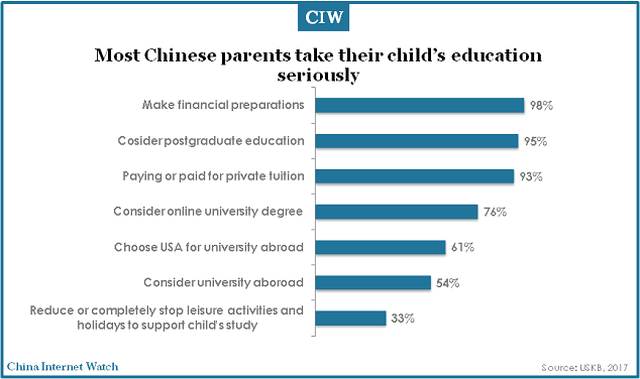
Attitudes towards online education
Global attitudes towards online education are mixed, with most parents simultaneously expressing some willingness to consider an online degree because of the cost savings and increased flexibility…
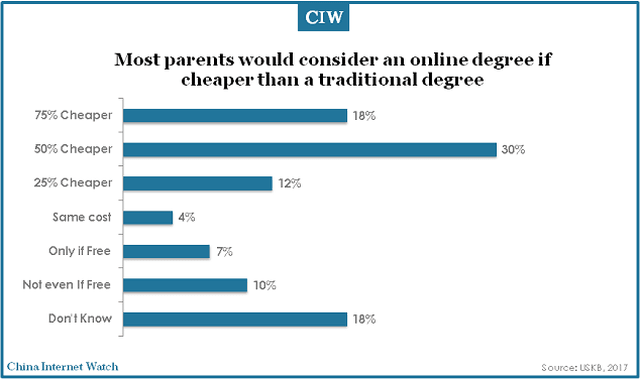
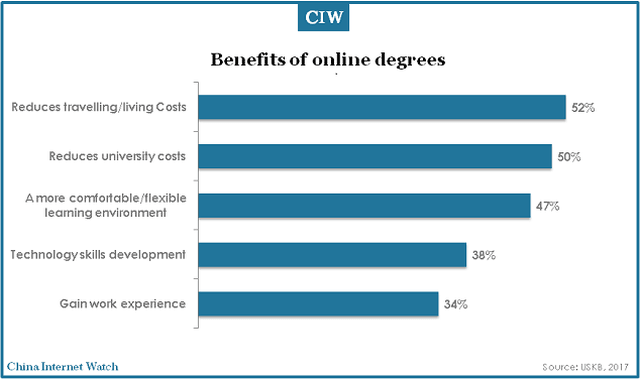
… And expressing caution at the potential downsides of such degrees, including the lack of interaction with peers and professors, limits on networking opportunities, and questions about suitability for some subjects.
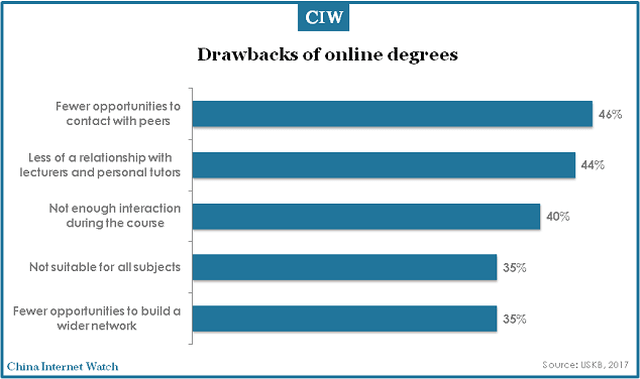
Nonetheless, most parents, in the end, say that they would consider an online university degree for their child, with the highest percentages coming from large developing economies such as India, Indonesia, and China.
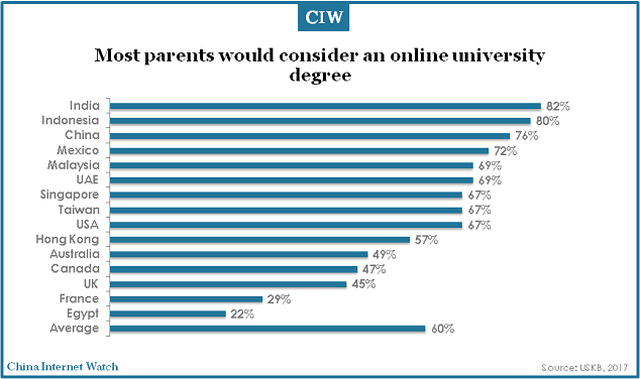
Beyond school: Educational experiences
Beyond a normal university education, many parents would consider allowing children to engage in other related experiences, such as study abroad programs, school exchanges, or work placement programs.
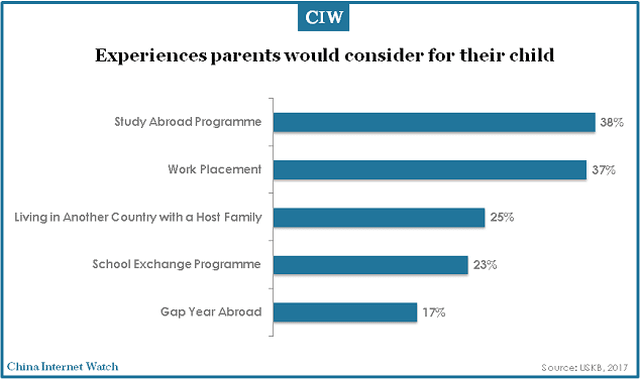
Attitudes towards education abroad
By far the most common such “experience”, however, is allowing a child to go to a full university program abroad, something widely considered by parents globally, most especially in the developing world.
Many parents are concerned about the costs of such an education, not just monetary but also in terms of safety and homesickness, but against this, they must weigh benefits including allowing their children to acquire new language skills, experience working abroad, and greater confidence and independence, as well as exposure to foreign cultures.
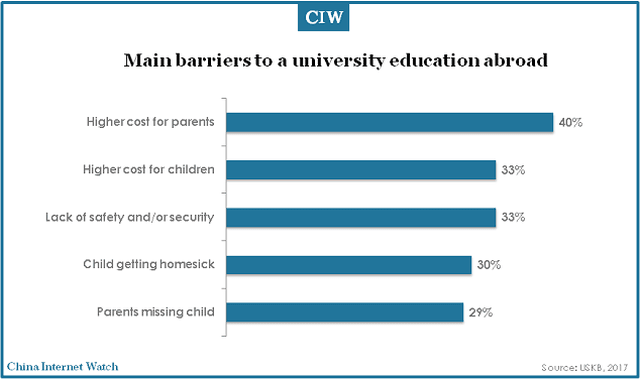
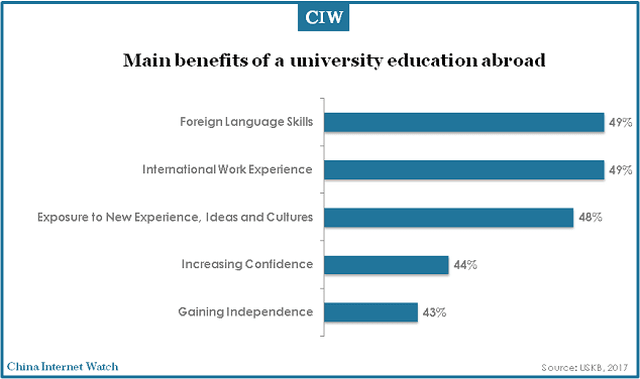
Many parents have specific universities in mind when they consider sending their children abroad; in evaluating these schools, they most frequently consider the quality of the teaching and education, the universities’ prestige, and post-graduation employment opportunities.
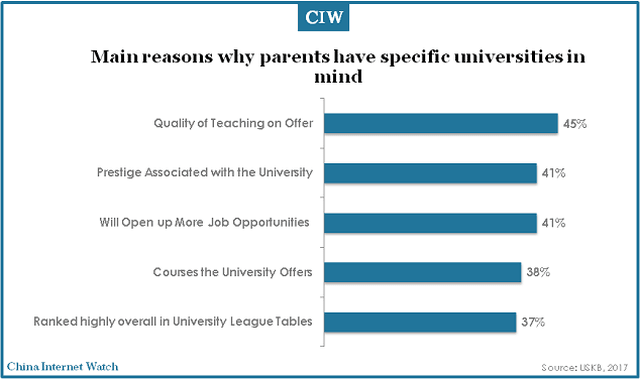
Additionally, parents who send their children abroad for university have clear preferences for certain countries; the top four common destinations are the four developed nations of the Anglosphere, with the US in the lead. Closely trailing them are other major developed economies, with Germany, France, and Japan among them.
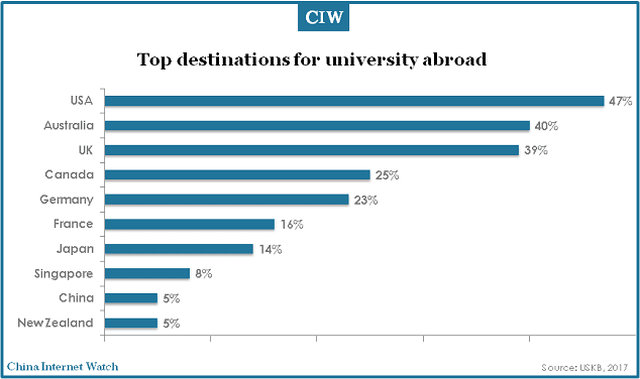
Despite the doubts discussed above, a majority of parents in developing countries would consider sending their children abroad for university. Meanwhile, parents in developed nations are less likely to want their children to go abroad for university, possibly because they have fewer qualms about the quality of the education available at home.
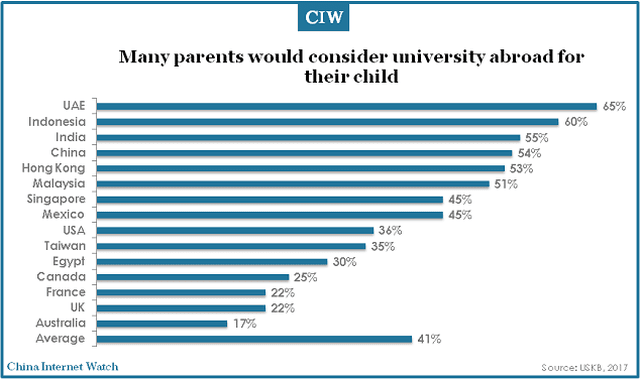
Majors, post-graduate education, and careers
Parents show a strong preference for majors such as medicine, business, finance, and engineering, which seems linked to their belief that education is a route to better employment prospects. Chinese parents are most likely to prefer business and finance majors, with a full 20% responding in favor.
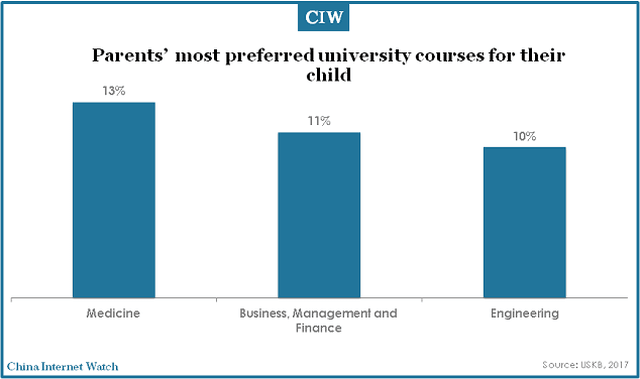
Parents’ belief in the value of education in the job market is especially strong regarding post-graduate education; over 90% of Chinese parents think post-graduate education will provide better job opportunities to their children, and 95% would consider sending their children, among the highest percentage of any nation’s parents.
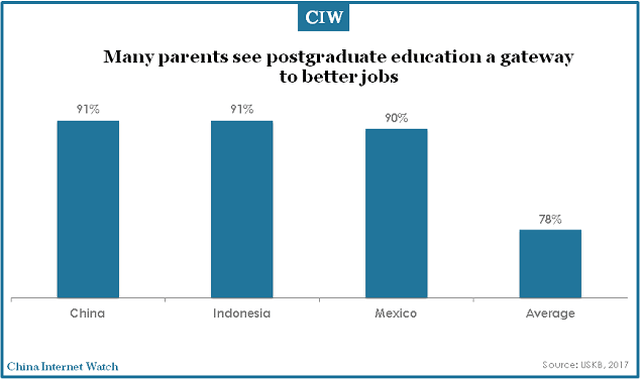
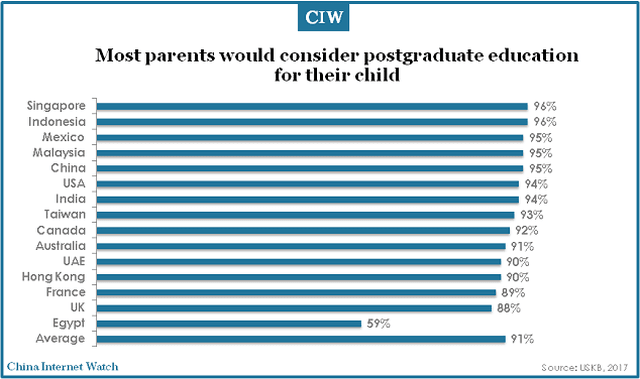
Educational Spending
Globally, the average parent spends some US$44,221 on a child’s education, split roughly evenly between primary, secondary, and university education.
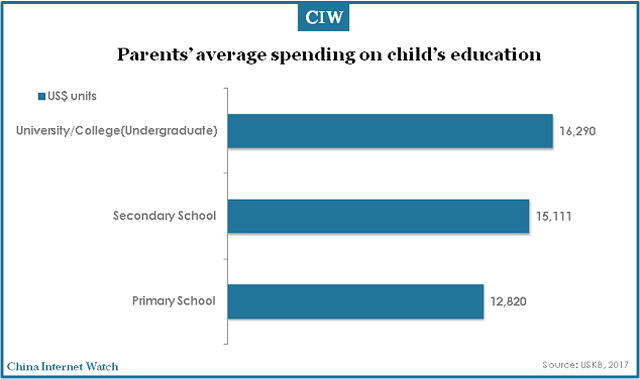
Average spending among Chinese parents is very close to the global average, despite China being much less wealthy on average than the other countries surveyed. For example, Chinese parents were apt to spend more on their children’s education than parents in Australia, the UK, Canada, or France, and only marginally less than those in the US and Taiwan.
Meanwhile, culturally Chinese Hong Kong topped the list, with the average parent spending more than US$130,000 on a child’s education.
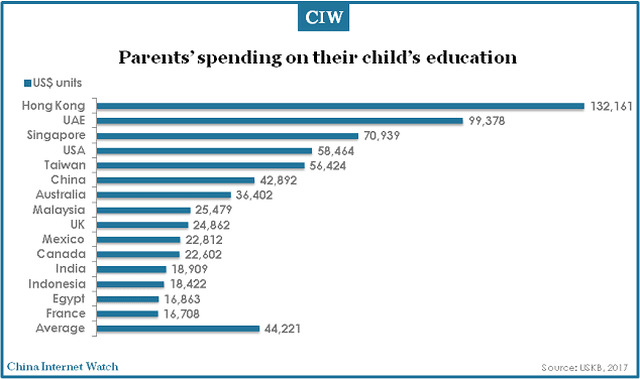
Beyond their finances, parents also make other sacrifices to support a child’s education, including reducing their “me-time”, cutting back on holidays, and changing their working styles and times.
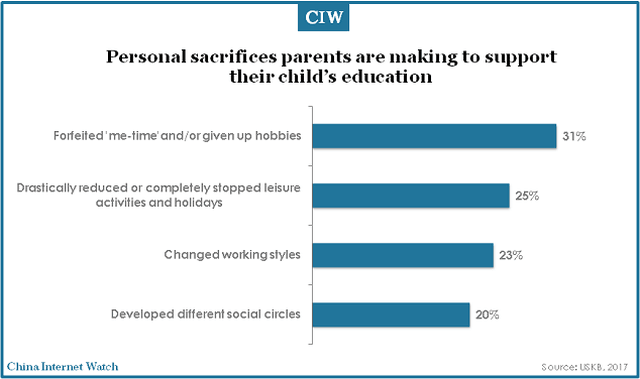
Private education is also very common, especially in the developing world, and most especially in the Sinosphere. Parents in developed economies are less likely to pay private tuition, preferring public schools, but parents in developing economies may send their children to private school in the absence of a strong public school option.
In China, public schools are generally of reasonable quality, but parents pay for private tutors and after-school programs to give their children a leg-up in the cutthroat competition for university spots and jobs.
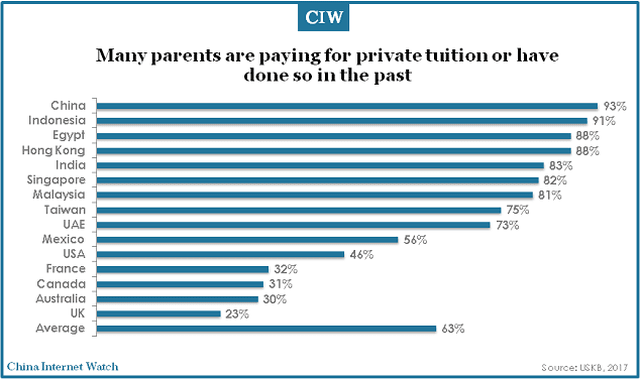
Education: An investment in the future
Most parents invest in education for their children because they’re optimistic about their children’s prospects and want them to have a better life than they otherwise would.
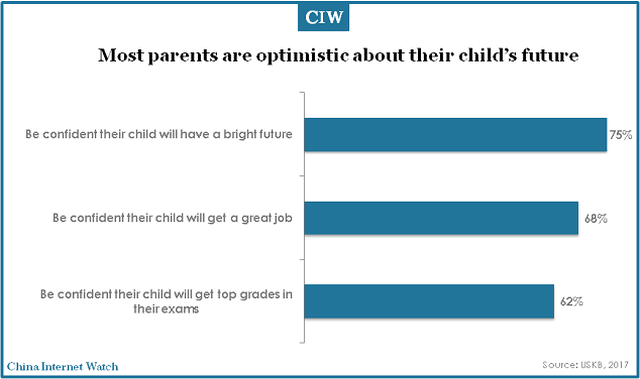
In part because the competition is so fierce, developing world parents have high aspirations for their children, that they will beat the average and have a better future than their peers.
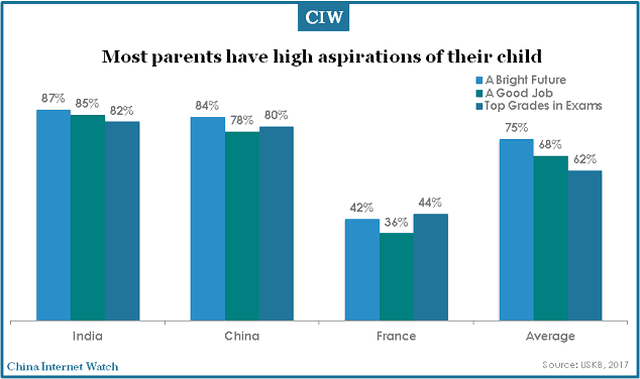
Investment in education, for these parents, is a way to help their children achieve this brighter future.